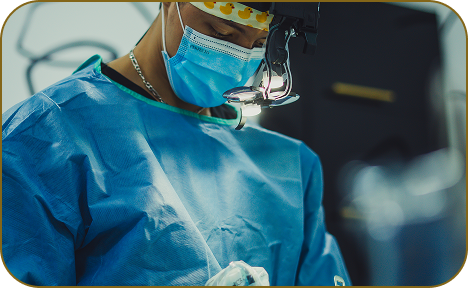Oral and maxillofacial surgery
Oral and maxillofacial surgery is a specialty that treats pathologies, traumas, and anomalies affecting the mouth, jaws, and face. Whether it’s for wisdom tooth extraction, correction of malformations, or reconstruction after an accident, this discipline combines precision and expertise to improve the patient’s health and aesthetics.
Thanks to advanced technologies and modern techniques, interventions are now safer, less invasive, and guarantee a rapid recovery.


Steps of an Intervention
- 1. Consultation and Diagnosis:
- 2. Anesthesia and Intervention:
- 3. Surgical Procedures and Post-Operative Care:
- 4. Tracking and Recovery:
FAQ?
What are the main interventions in oral and maxillofacial surgery?
- Extraction of wisdom teeth
- Placement of dental implants
- Surgery of cysts and oral tumors
- Correction of malocclusions and shifted jaws
- Repairs after a facial trauma
Is the extraction of wisdom teeth painful?
No, it is performed under local anesthesia and is completely painless. A slight pain and swelling may appear after the procedure, but they disappear within a few days.
What is the recovery time after a maxillofacial surgery?
It depends on the complexity of the intervention. A simple tooth extraction requires a few days, while reconstructive surgery can take several weeks.
What are the post-operative care measures after a maxillofacial surgery?
- Apply a cold compress to limit swelling
- Avoid hard and hot foods for a few days
- Maintain good oral hygiene by following the surgeon’s recommendations
When should you consult a maxillofacial surgeon?
- If you are experiencing chronic jaw pain
- In case of impacted teeth or dental cysts
- If you have a facial trauma or a deformation requiring correction
